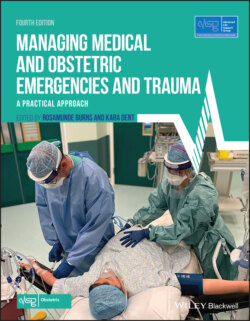Читать книгу Managing Medical and Obstetric Emergencies and Trauma - Группа авторов - Страница 132
7.2 Sepsis in pregnancy
ОглавлениеPregnant women have increased susceptibility to some infectious diseases, e.g. Plasmodium falciparum and Listeria monoctogenes
In advanced pregnancy there are immunological changes that decrease adaptive immunity such that increased severity of infection is seen where cell‐mediated immunity is important. Pregnant women are more severely affected by influenza virus, hepatitis E virus, herpes simplex virus and malaria parasites
The physiological changes of pregnancy that reduce lung capacity and promote urinary stasis may promote more severe infection
The 2014 MBRRACE‐UK report highlighted a substantial number of women who died following infection with influenza and the recommendation was made for influenza vaccination in pregnancy. The 2017 MBRRACE‐UK report re‐emphasised that pregnant women with influenza were dying from a vaccine preventable disease and that the messages around vaccination and treatment of influenza needed to be embedded to prevent deaths and to prepare for a future pandemic. Staff should remain aware of the possibility of influenza infection especially during peak seasonal periods. The Covid‐19 pandemic has highlighted these messages once again.
Antepartum causes of sepsis are commonly non‐pelvic in origin. Intrapartum and postpartum sepsis is more likely to be pelvic in origin. The classification of maternal infection is given in Box 7.1.
